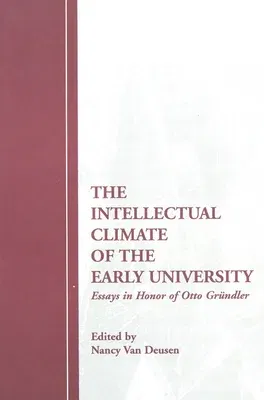The Intellectual Climate of the Early University: Essays in Honor of Otto GrundlerPaperback, 1 July 1997

Qty
1
Turbo
Ships in 2 - 3 days
Only 5 left
Free Delivery
Cash on Delivery
15 Days
Free Returns
Secure Checkout

Part of Series
Early Drama, Art, and Music Monograph Series
Print Length
219 pages
Language
English
Publisher
Medieval Institute Publications
Date Published
1 Jul 1997
ISBN-10
1879288842
ISBN-13
9781879288843
Description
Product Details
Book Format:
Paperback
Country of Origin:
GB
Date Published:
1 July 1997
Dimensions:
22.61 x
15.24 x
1.52 cm
Genre:
Medieval (500-1453) Studies
ISBN-10:
1879288842
ISBN-13:
9781879288843
Language:
English
Location:
Kalamazoo
Pages:
219
Publisher:
Weight:
376.48 gm